The relationship between Japan and Russia is a complex and multifaceted one, characterized by historical tensions, territorial disputes, economic interests, and geopolitical considerations. Stretching back centuries, the interaction between these two nations has been influenced by a variety of factors, including regional power dynamics, strategic alliances, and cultural exchanges. This essay will explore the historical background, key issues, current status, and prospects of Japan-Russia relations.
Historical Background
The history of Japan-Russia relations can be traced back to the 17th century when Russian explorers first made contact with the Japanese archipelago. However, it was not until the 19th century that formal diplomatic relations were established between the two countries. The signing of the Treaty of Shimoda in 1855 marked the beginning of official interaction, albeit under the shadow of Western imperialism and the decline of the Qing Dynasty in China.
One of the most significant events in the early history of Japan-Russia relations was the Russo-Japanese War of 1904-1905. Fought over territorial and strategic interests in Northeast Asia, particularly the control of Korea and Manchuria, the conflict ended in a surprising victory for Japan, establishing it as a regional power and significantly weakening Russia’s position in the Far East. The Treaty of Portsmouth, mediated by U.S. President Theodore Roosevelt, formally ended the war and had lasting implications for the balance of power in the region.
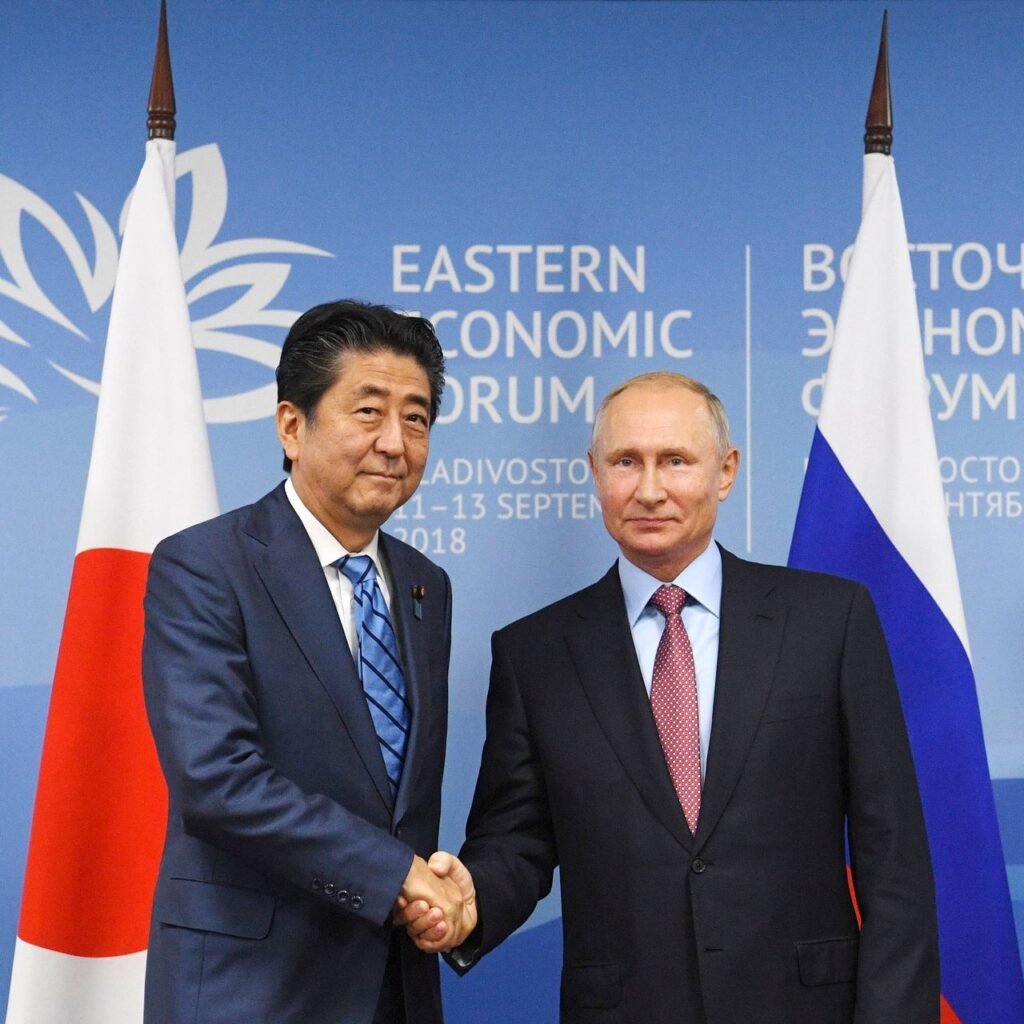
Territorial Disputes
The most prominent issue in Japan-Russia relations is the territorial dispute over the Kuril Islands, known as the Northern Territories in Japan. This chain of islands, located off the northeastern coast of Hokkaido, has been a point of contention between the two countries since the end of World War II. The Soviet Union occupied the islands in the closing days of the war, and despite Japan’s repeated claims to their return, they remain under Russian control to this day.
Efforts to resolve the dispute have been ongoing for decades, with both sides engaging in diplomatic negotiations and occasional high-level meetings. However, progress has been limited, primarily due to entrenched national interests, domestic politics, and strategic considerations. Japan asserts its sovereignty over the islands based on historical claims and international law, while Russia maintains control over them as part of its post-war territorial gains.
Economic Interests
Despite the territorial dispute, Japan and Russia have maintained economic ties, albeit to a lesser extent compared to other major trading partners. Energy cooperation has been a central pillar of bilateral economic relations, with Japan importing significant quantities of natural gas and crude oil from Russia. The construction of the Sakhalin-2 liquefied natural gas (LNG) project, in which Japanese companies are involved, has further cemented energy cooperation between the two countries.
In recent years, both Japan and Russia have expressed interest in expanding economic cooperation beyond the energy sector. Efforts to promote trade, investment, and joint ventures in areas such as infrastructure development, technology transfer, and agriculture have been explored. However, geopolitical tensions and regulatory barriers constrain the potential for deeper economic integration.
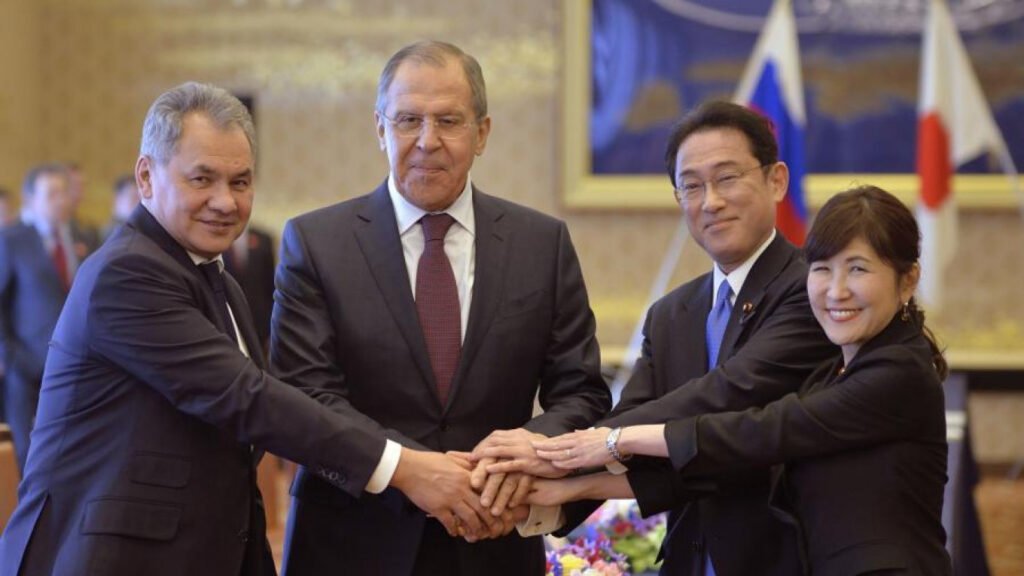
Geopolitical Considerations
The geopolitical dynamics of Northeast Asia play a crucial role in shaping Japan-Russia relations. Both countries are key players in the region, with strategic interests that often intersect and compete. Japan’s alliance with the United States and its position as a leading democracy in Asia have implications for its relations with Russia, particularly in the context of security and defense cooperation.
Russia, on the other hand, has sought to strengthen its ties with China as part of its broader geopolitical strategy. The deepening partnership between Moscow and Beijing, driven by shared opposition to U.S. dominance and a desire for multipolarity, has implications for Japan-Russia relations, particularly in the context of regional security and the balance of power in Northeast Asia.
Current Status and Future Prospects
As of the present day, Japan-Russia relations remain characterized by a mixture of cooperation and competition, with the Kuril Islands dispute remaining a significant obstacle to deeper engagement. Despite occasional diplomatic initiatives and gestures of goodwill, fundamental differences persist, preventing a comprehensive resolution to the territorial issue.
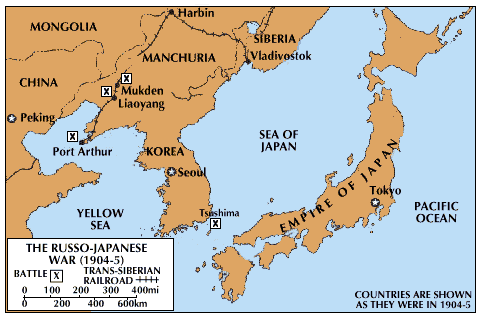
Looking ahead, the prospects of Japan-Russia relations will likely be influenced by a variety of factors, including domestic politics, regional developments, and global trends. Efforts to promote economic cooperation, people-to-people exchanges, and confidence-building measures could contribute to building trust and reducing tensions between the two countries.
Ultimately, the resolution of the Kuril Islands dispute will be critical to unlocking the full potential of Japan-Russia relations. While a mutually acceptable solution remains elusive, continued dialogue and diplomatic engagement will be essential in managing differences and advancing shared interests in Northeast Asia and beyond.
Military relations between Russia-Japan
The military relationship between Russia and Japan is complex, shaped by historical tensions, territorial disputes, and contemporary geopolitical dynamics. While the two countries share a long history of diplomatic engagement and occasional cooperation, their military relations have been marked by periods of rivalry and mistrust.
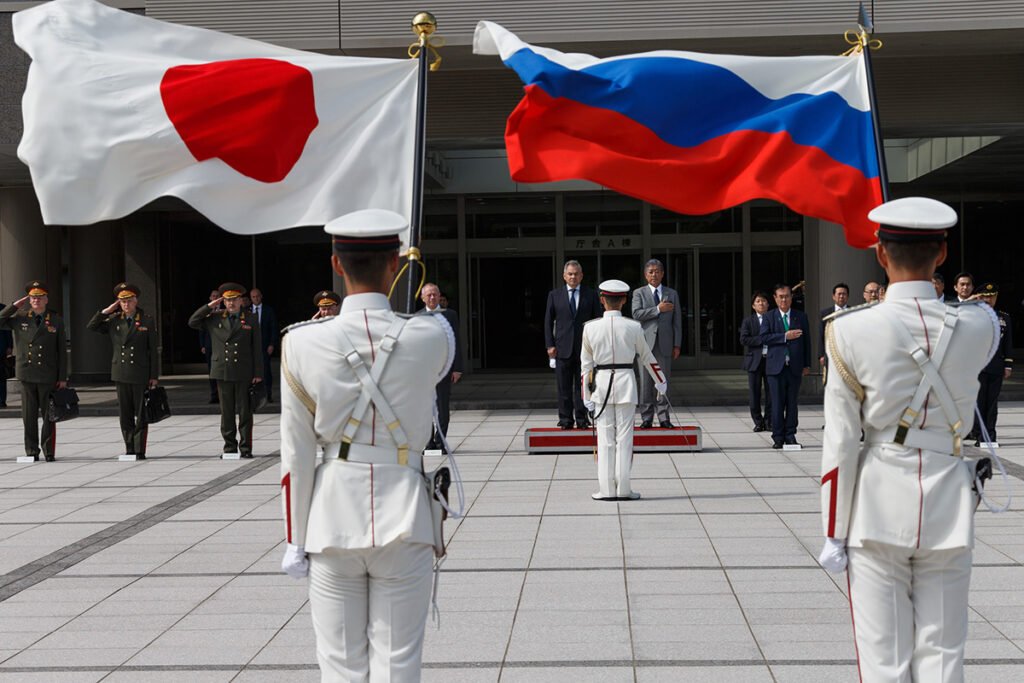
- Historical Context:
- The history of military relations between Russia and Japan is deeply intertwined with their territorial disputes, particularly concerning the Kuril Islands and Sakhalin.
- The Russo-Japanese War of 1904-1905 was a significant event that shaped their military relations. Japan’s victory in this conflict altered the balance of power in East Asia and established Japan as a major regional player.
- Following World War II, the Soviet Union occupied the Kuril Islands, which Japan claims as its Northern Territories. The absence of a peace treaty between Japan and Russia has kept this territorial dispute unresolved, affecting their military relations.
- Cold War Era:
- During the Cold War, Japan and the Soviet Union were on opposing sides, with Japan closely allied with the United States as part of its security architecture in the Asia-Pacific region.
- The Soviet Union’s military presence in the Far East, including its naval deployments, was a source of concern for Japan’s security planners.
- The downing of Korean Air Lines Flight 007 by the Soviet Union in 1983, which resulted in the deaths of many Japanese citizens, further strained relations between Japan and the Soviet Union.
- Post-Cold War Period:
- With the dissolution of the Soviet Union in 1991, there were hopes for improved relations between Russia and Japan. However, the territorial dispute over the Kuril Islands remained a significant obstacle.
- Despite this dispute, efforts have been to enhance military-to-military contacts between Russia and Japan. These include occasional joint naval exercises and dialogues aimed at building confidence and reducing the risk of unintended incidents.
- Recent Developments:
- In recent years, both Russia and Japan have faced evolving security challenges in the Asia-Pacific region. Russia’s assertive actions, such as its annexation of Crimea in 2014 and increased military presence in the Arctic, have raised concerns among Japanese policymakers.
- Japan, on the other hand, has been modernizing its military capabilities in response to regional security threats, including North Korea’s nuclear and missile programs and China’s growing assertiveness in the East China Sea and South China Sea.
- Despite these challenges, there have been occasional signs of cooperation between Russia and Japan on security issues of mutual concern. For example, both countries have expressed interest in enhancing cooperation on counterterrorism and maritime security.
- Territorial Dispute and Its Impact:
- The unresolved territorial dispute over the Kuril Islands continues to be the primary obstacle to closer military cooperation between Russia and Japan.
- Japan maintains that the four southernmost islands of the Kuril chain—Iturup, Kunashir, Shikotan, and Habomai—are part of its sovereign territory, while Russia controls them.
- The dispute over the Kuril Islands complicates military planning and cooperation between Russia and Japan, as both countries view the islands as strategically significant for their defense postures in the region.
- Diplomatic Efforts:
- Diplomatic efforts to resolve the territorial dispute have been ongoing but have yet to yield a breakthrough. Both countries have engaged in negotiations and discussions aimed at finding a mutually acceptable solution.
- However, domestic political considerations in both Russia and Japan, as well as broader geopolitical dynamics, have made reaching a compromise challenging.
- Future Prospects:
- The future of military relations between Russia and Japan will likely be shaped by a combination of geopolitical developments, domestic politics, and efforts to resolve the territorial dispute.
- While the two countries may continue to engage in dialogue and limited cooperation on security issues, significant progress in their military relations is unlikely without a resolution of the Kuril Islands dispute.
- The evolving security landscape in the Asia-Pacific region, including the rise of China as a dominant military power and the shifting dynamics of U.S.-Russia relations, will also influence the trajectory of Russia-Japan military relations.
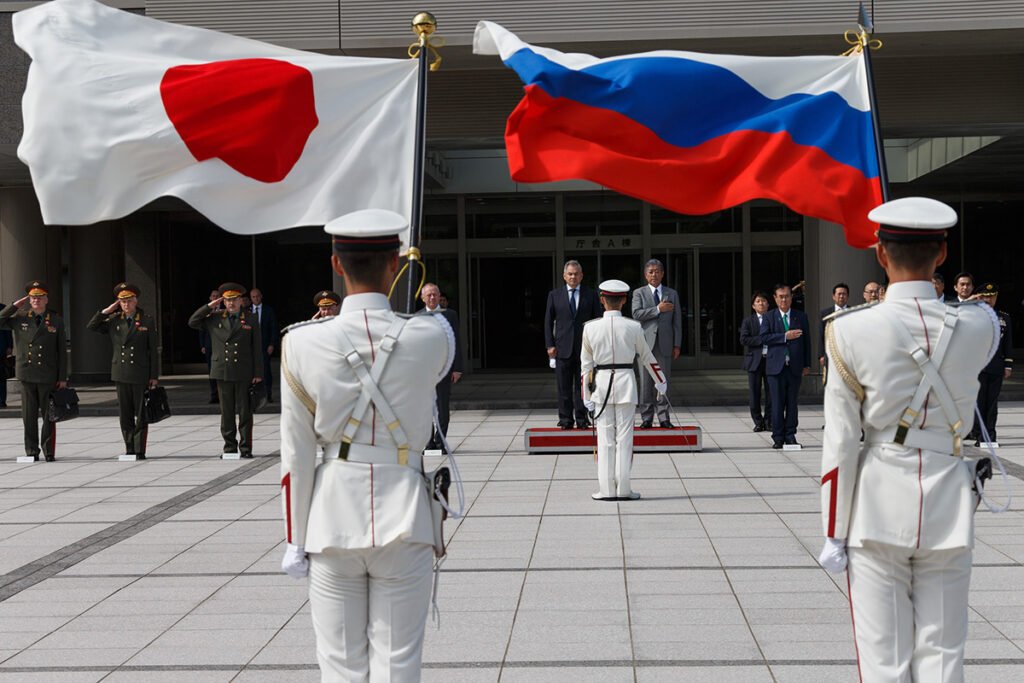
In summary, the military relationship between Russia and Japan is characterized by historical tensions, territorial disputes, and contemporary geopolitical dynamics. While efforts have been made to enhance military-to-military contacts and cooperation, the unresolved dispute over the Kuril Islands remains a significant obstacle to closer relations. The future of their military relationship will depend on the resolution of this territorial dispute, as well as broader regional and global security dynamics.
